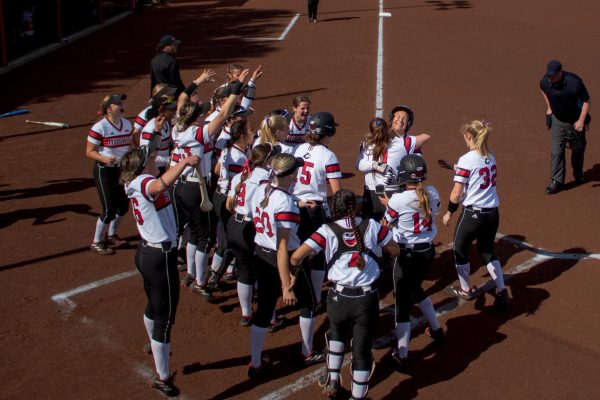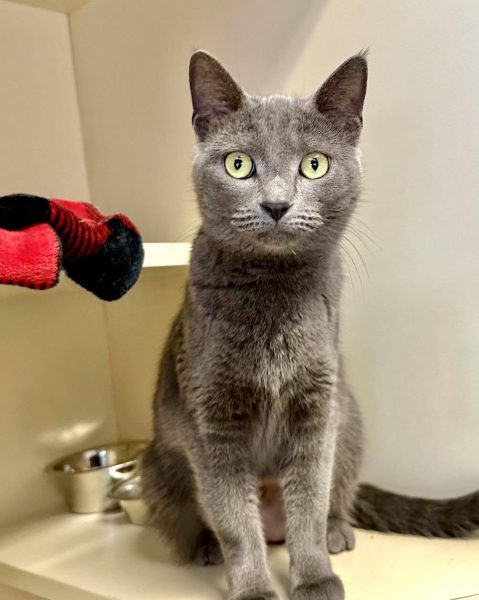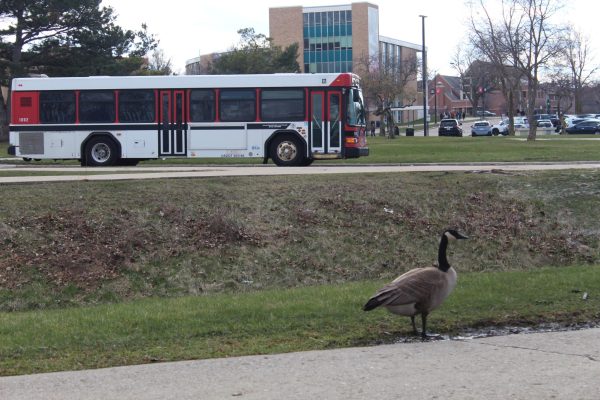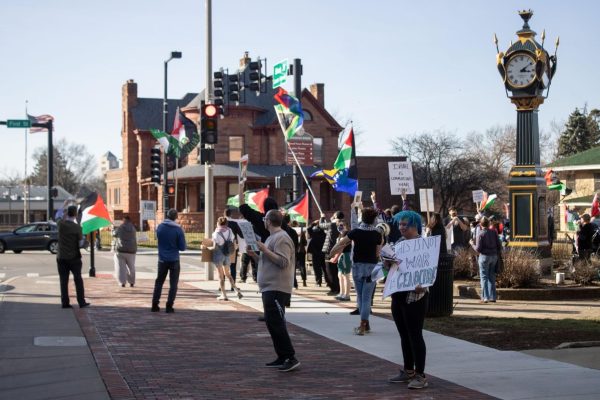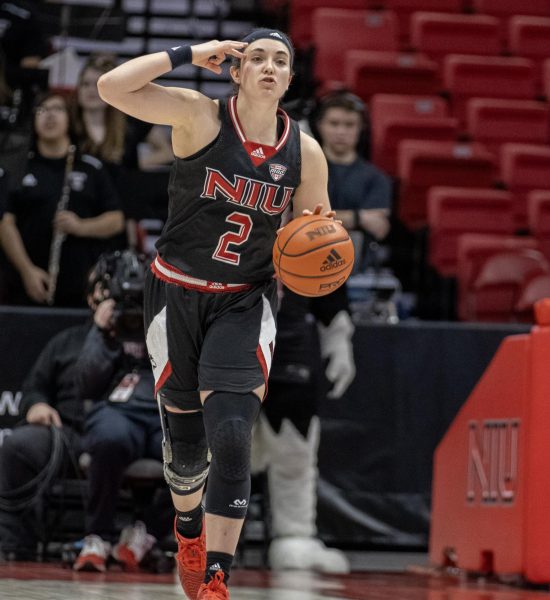Faculty Senate holds final meeting of the semester
April 25, 2013
Passing three resolutions, members of the Faculty Senate sent a message to the administration about the meaning of shared governance at its final meeting of this academic year on Wednesday.
Representatives at the meeting said shared government should mean shared and passed resolutions that would increase their access to data as well as their role in shaping the budget.
NIU President John Peters was on hand to say farewell and to thank the Faculty Senate for its hard work during his tenure.
Student Association (SA) representatives talked to Faculty Senate about its referendum to improve the Campus Recreation Center. The referendum asked students if an improved Recreation Center should be a high priority in the immediate future; 914 students voted yes, and 364 said it should not be a priority.
The Faculty Senate supported the measure with a 25-1 vote. It lended support for the improvements to the SA. Faculty Senate President Alan Rosenbaum said the resolution would be amended to include a provision for separate locker room and shower facilities for faculty and staff.
“You don’t want to argue with a student over grades when standing naked in a shower,” Rosenbaum said. “It’s awkward for both, not just faculty members. I think it’s an idea that is long overdue. If we’re going to fix the facilities, then let’s fix them in all respects. I think one of the reasons that faculty can support a resolution like that is because there’s loads of faculty that would like to use the facility, and that may not use it for this exact reason.”
The only candidate, Rosenbaum was unanimously re-elected president of the Faculty Senate. He is also executive secretary of the University Council. Rosenbaum announced this year will be his fifth and final term holding the positions.
Also passed by the Faculty Senate was a resolution created by the Academic Affairs Committee. According to the resolution, the faculty are the chief custodians of the academic mission and integrity of the university, and as such they are responsible for awarding grades and establishing and monitoring standards. Citing these reasons, members of the Faculty Senate requested increased access to relevant data, mainly grade distributions.
Charles Cappell, chair of the Academic Affairs Committee and associate professor of sociology, presented the resolution.
“Well, in general the sense of the Faculty Senate is that if we’re participating in shared governance, we want to have the same administrative data when at all possible that the administration uses so that we are informed and we can be more efficient,” Cappell said.
Cappell said the information is pertinent to the committee, and avenues for getting that information currently are undefined and inefficient.
“In respect to the Academic Affairs Committee, it’s our responsibility to get information that can really help us determine if were meeting academic standards,” Cappell said. “If there are any issues that need to be addressed and we want information, that should be available. Right now the routes of getting data are not clear. It usually goes through faculty departments, and sometimes information is not as widely distributed as we would like. So this is just trying to emphasis the shared governance role, making sure we have good information.”
Jim Wilson, spokesperson for the Committee on Resources, Space and Budget, presented a report and the year-end summary. Wilson also proposed a resolution in regard to recommendations for budget priorities.
“How well is decision making linking to these priorities we have established, is basically what we’re asking,” Wilson said. “The idea behind that is that it’s really kind of an engagement process. We have input and we don’t expect to get everything we ask for, but to get better understanding of how the processes are working, and that in turn would help us shape future suggestions and our priorities in the future. So all we’re asking to do is have a more active role in getting information ahead of time so we see what happens in the decision making process of the administration.”
In his final Faculty Senate meeting appearance, Peters talked about his time in DeKalb and his accomplishments. Peters said he could finally read all the books he has moved around with him. He plans on writing, specifically a book about being the president of a university. He was presented with a decree naming him a Faculty Senator for life.



